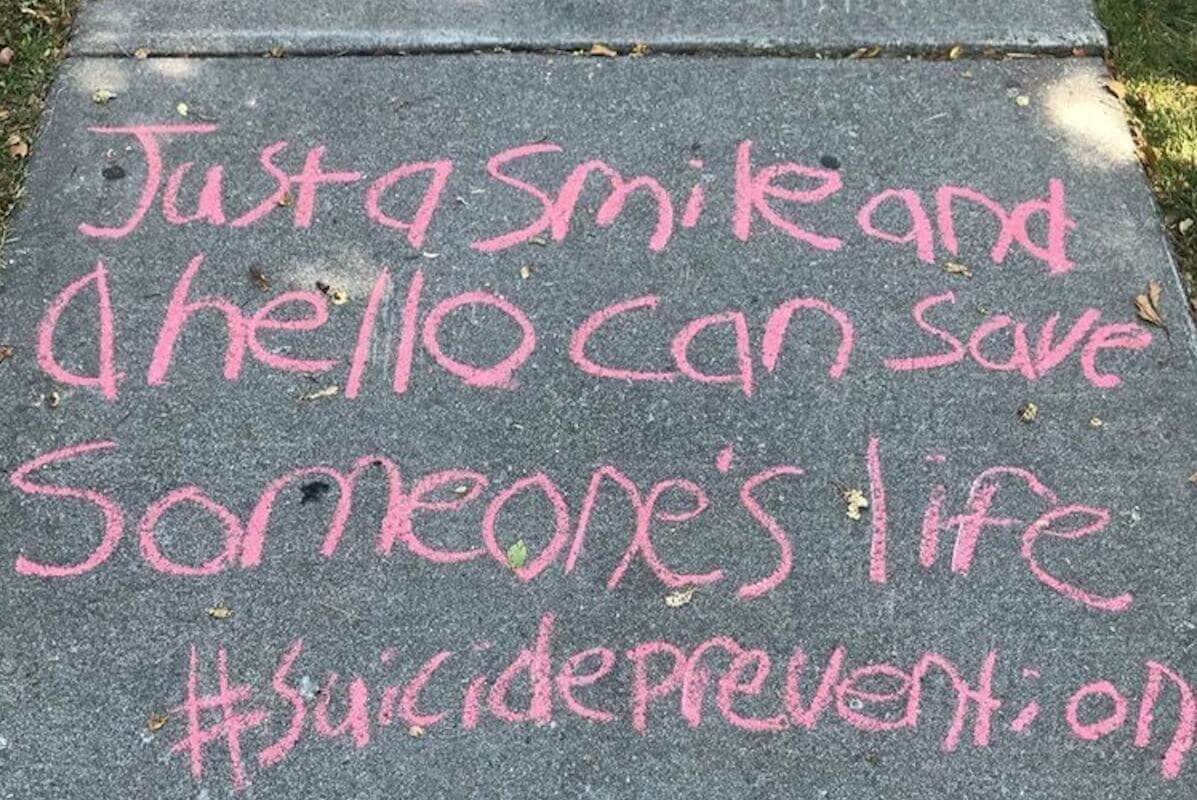– By Rachel Deanne Sherman ’18
The year is 2018. Mental health is still stigmatized, and people with mental illness have difficulty reaching out for help. While the stigmatization lessens with each passing year, students still find it difficult to talk about subjects like their anxiety or depression as well as many other mental health disorders. Active Minds is working to change this.
Active Minds is a nonprofit organization which formed after the founder’s brother died by suicide. Its mission statement, “changing the conversation about mental health since 2003,” is meant to open up conversations between college students who are struggling. In its chapter foundations workbook, Active Minds says “we are dedicated to saving lives and to building stronger campus communities.”
Psychology major Kendall Melton ’20 is the current president of the Shenandoah chapter of Active Minds. She helped bring it to campus in spring 2017 and took over as president the following semester.
“There are so many people that you meet and talk to that can be going through stuff and you would never know,” said Melton, who wanted to improve her knowledge of mental health disorders by bringing Active Minds to Shenandoah. “Being on such a small campus, you feel like you know everybody. Sometimes, it’s hard to ask for help. But, having a club that is meant for raising awareness is good to have here.”
Offering connection and understanding
Members of Active Minds participated in a “Chalk the Campus” event in October 2017, which involved writing inspirational and positive phrases on sidewalks across campus to help students who were going through a rough time. Other actions involved handing out fliers with tips and lifelines for better mental health and posting positive messages across campus.
“Seeing a Post-it note in the bathroom that says ‘You’ve got this’ or ‘You’re beautiful’ is really nice to see,” said Melton. “You don’t have to have depression or anything. Sometimes people just have bad days. It’s nice to see ‘You’ve got this.’ The little things like that really do help.”
“I really like it,” said Cindy King, ’21, a member of Active Minds. “I like the people. They are fun and they are all understanding.”
“Active Minds is important to me because I have had mental health disorders around me for my whole life,” King added. “My family members all have some different type, and I have my anxiety and bipolar disorders. My family has always been really supportive of me and my struggles. I could look at other people, and I would be shocked that they made it so long without the same amount of support I had. No one should ever feel they are alone.”
Emily Petkus, director of the Shenandoah University Counseling Center, is concerned about how stigmas affect people who need help.
“It’s the biggest problem with mental illness and getting help,” said Petkus. “Sometimes getting a diagnosis is difficult for people. I think the stigma is just so damaging. People develop opinions about all kinds of different things. But, then it turns into a stereotype and then a judgment.”
Peer-to-peer support
While the counseling center exists, Petkus is grateful to the members of Active Minds for providing peer-to-peer support.
“As professional counselors, we do the best that we can to reach out, educate people, and offer support. But, we’ve noticed that there is some discomfort in talking with us. We try to make ourselves available and approachable,” she said. “If students have this organization that almost normalizes the topic of mental health and the existence of mental illnesses, it makes it easier for them to seek help. Students will talk to students. Having the Active Minds chapter is really helpful in that sense.”
“No one should ever have to feel alone and that they have to go to extremes to get help,” said King. “People need to know that help is readily available and that they have have access to it. That’s what I like about Active Minds. It’s destroying the stigma by saying ‘You’re not a freak for being the way you are.’ It’s okay to reach out for help. It’s okay to let someone pick you back up again.”
Questions?
If you have questions about Active Minds or are interested in joining, contact Melton at kmelton16@su.edu or co-president Madisen Kesecker at mkesecke16@su.edu.
If you are in a crisis, please contact one of these hotlines:
For suicide prevention, call 1-800-273-8255, or visit https://psychcentral.com/lib/common-hotline-phone-numbers/.
Concern Hotline at 540/667-0145, in Winchester, and Frederick and Clarke counties. Other numbers are available for surrounding areas at concernhotline.org.
You can also contact the Shenandoah University Counseling Center at counseling@su.edu or 540/665-4530, to set up a counseling appointment.




